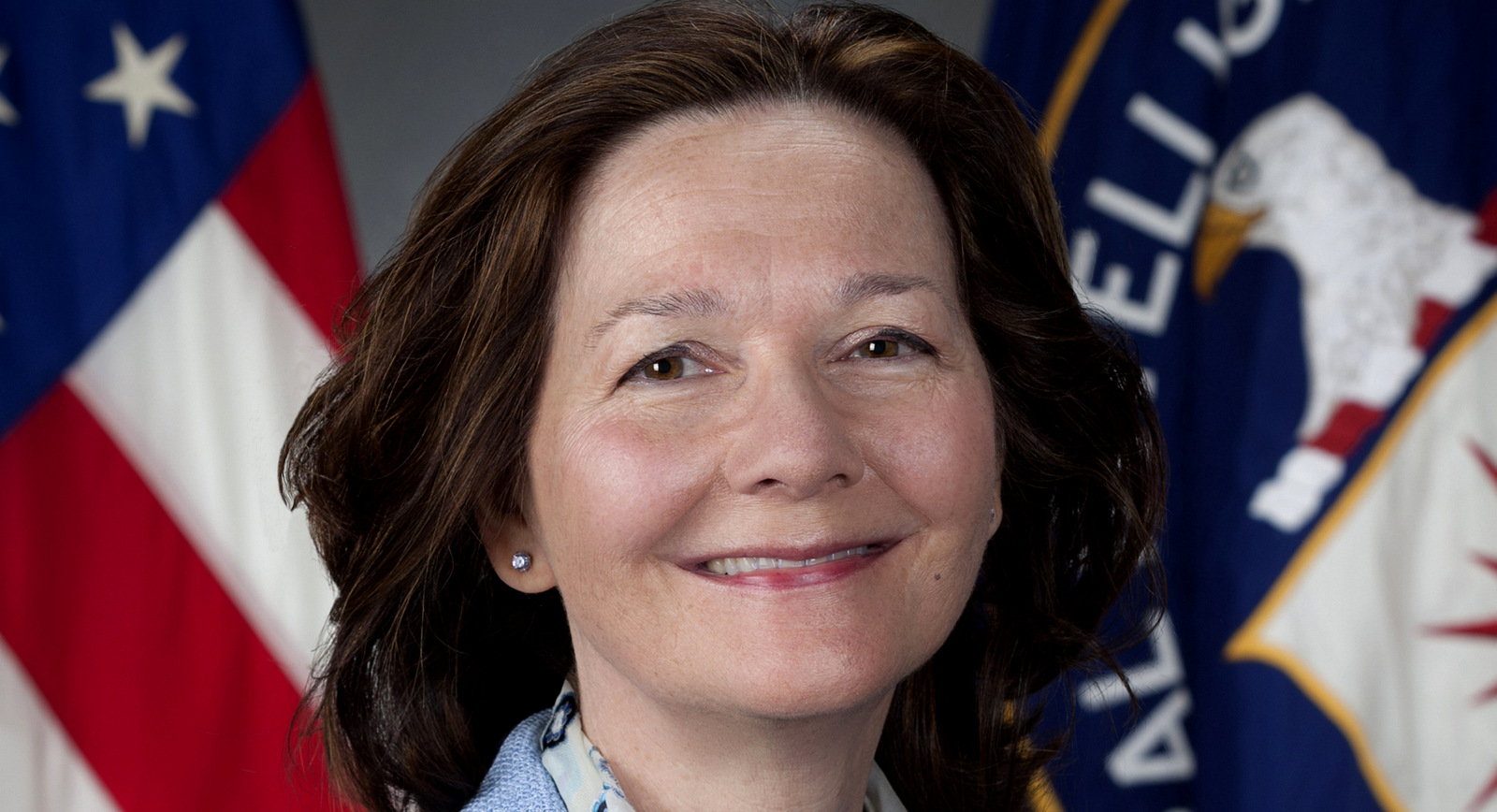MEMORANDUM FOR: The President
FROM: Veteran Intelligence Professionals for Sanity
SUBJECT: Request to Withdraw Nomination of Gina Haspel
EXECUTIVE SUMMARY
With respect, we veteran intelligence officers from CIA and other agencies urge you to withdraw the nomination of Gina Haspel for CIA director. From what is already known of her leading role in CIA torture 16 years ago, she has disqualified herself.
In 2002 Haspel supervised the first CIA “black site” for interrogation, where cruel and bizarre forms of torture were applied to suspected terrorists. And when the existence of 92 videotapes of those torture sessions was revealed, Haspel signed a cable ordering their destruction, against the advice of legal counsel at CIA and the White House.
Does Torture ‘Work?’
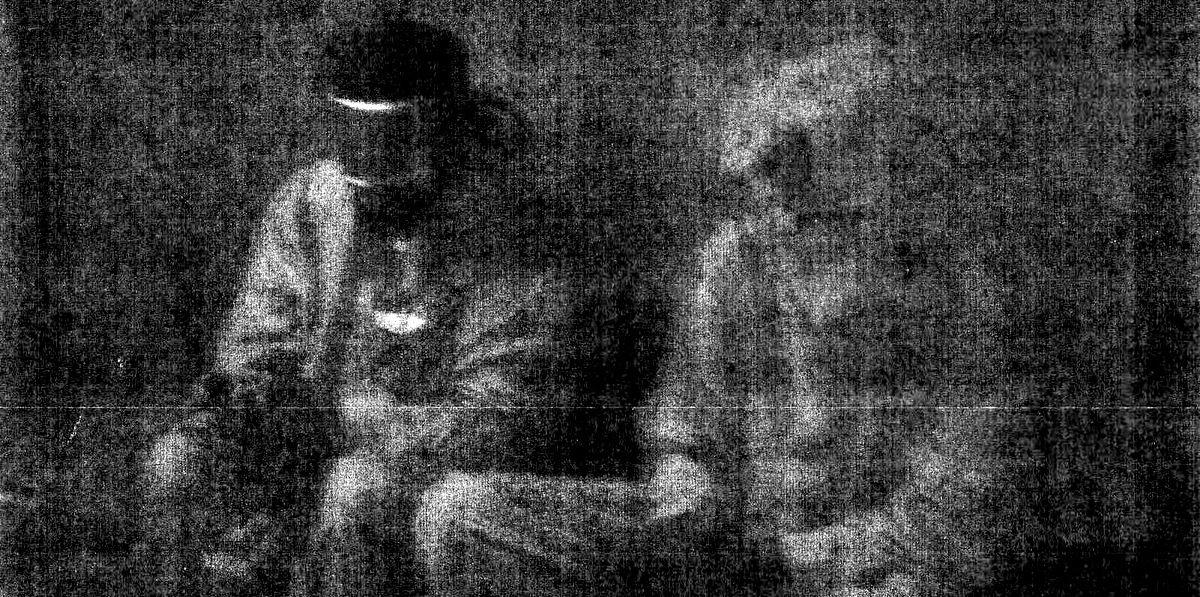
We are confident that if you set aside some time to read the unredacted portions of the Senate Intelligence Committee report of 2014 on the torture ordered and supervised by Haspel and other CIA managers, you will change your mind about her nomination. The five-year Senate investigation was based primarily on original CIA cables and other sensitive documents.
In addition to revealing clear violations of the UN Convention Against Torture, the Senate investigation shows that claims by senior CIA officials that torture is effective are far from true. The US Army — in which many of us have served — has been aware of the ineffectiveness of torture for decades.
General John Kimmons, head of Army Intelligence, drove home that point on September 6, 2006 — approximately an hour before President George W. Bush publicly extolled the virtues of torture methods that became known as “enhanced interrogation techniques.” Gen. Kimmons stated: “No good intelligence is going to come from abusive practices. I think history tells us that. I think the empirical evidence of the last five years — hard years — tell us that.”
We believe that Defense Secretary James Mattis’ lack of enthusiasm for torture reflects lessons drawn from the historical experience of the Marine Corps, as well. Not to mention the twin reality that torture brutalizes the brutalizer, and that US use of torture puts our own troops in serious jeopardy when captured. Moreover, there is no more effective recruitment tool than torture to attract more terrorists.
International and Domestic Law
Please also be aware that many signatories to the UN Convention Against Torture take seriously their obligations under the principle of “universal jurisdiction,” which applies when those who authorize or practice torture are not brought to justice by authorities in their home countries.
George W. Bush experienced a precarious brush with this reality in 2011, when he had to abruptly cancel a visit to Geneva, Switzerland, after discovering that plans were in place to arrest him as soon as he stepped onto Swiss soil. [See “America’s Stay-at-Home Ex-President”] The widely respected European Center for Constitutional and Human Rights already has made no secret of its intention to proceed quickly against Haspel, should she set foot in Europe.
We believe that CIA’s activities and general focus have become severely unbalanced, with the lion’s share of funding and energy going to the paramilitary-prone operational side — where the potential for human rights abuses is not given sufficient consideration.
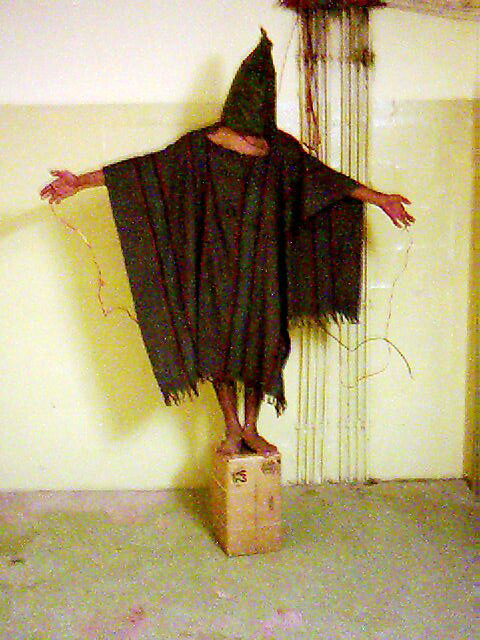
That trend has gone on steroids in more recent decades, and it is a safe bet that Gina Haspel would accelerate it. We would also observe that if most of the talent and funding goes to CIA paramilitary operations, then the by-products will necessarily include a tendency to engage in politically motivated — and therefore shabby — analysis. That means that senior policymakers like you will be poorly informed, particularly with respect to complex world issues — including biased perspectives on Russia and its newly re-elected president, Vladimir Putin.
* * *
We Veteran Intelligence Professionals for Sanity (VIPS) are extremely concerned at the possibility that Gina Haspel might become the next Director of the CIA. Haspel actually supervised a CIA “black site” codenamed “Cat’s Eye” in Thailand where a number of suspected terrorists were tortured. She subsequently collaborated in destroying all 92 videotapes of the torture sessions, effectively covering up what were likely serious war crimes.
There should be no question about the illegality of torture. Iabt has been universally condemned and banned by both the Geneva Conventions and United Nations Convention Against Torture and Other Cruel, Inhuman or Degrading Treatment or Punishment, which was signed by President Ronald Reagan in 1988 and ratified by the Senate in 1994.
The UN Convention defines torture “as any act by which severe pain or suffering, whether physical or mental, is intentionally inflicted on a person for such purposes as obtaining from him, or a third person, information or a confession…” and makes clear that “no exceptional circumstances whatsoever, whether a state of war or threat of war, internal political instability or any other public emergency, may be invoked as a justification of torture.”
The Convention’s Article 2 requires signatories to take effective measures to prevent torture in any territory under their jurisdiction. The complete prohibition of torture is absolute. Under international law, officials cannot receive immunity in cases involving torture and governments that have signed the Convention are obligated to bring torturers to justice. US domestic law was brought in line with the Convention once the US became a signatory and ratified it.
Some in the Pentagon clearly took seriously allegations of torture and were willing to file criminal charges against those involved, though Department of Defense leadership never saw fit to assume responsibility for having set up a policy environment that quite clearly condoned EIT.In the wake of the Abu Ghraib revelations, torture, to include its variations that have been euphemistically described as “enhanced interrogation techniques” (EIT), is now explicitly banned by the US military in its training manuals. A number of soldiers were tried and imprisoned in the wake of Abu Ghraib, although the “upper ranks” — in civilian as well as military spheres — who approved torture managed to escape serious consequences.
There is also another significant historical and legal precedent that demonstrates that the United States government has by its own actions agreed that what is today being called “enhanced interrogation” is a war crime. In 1946-1948, Japanese officers who tortured Allied soldiers — including what is now referred to as waterboarding — were tried at the Tokyo post-war tribunals for that crime, found guilty, and executed.
Heinous
More recently, the meticulously documented unclassified 528 page Executive Summary of the Senate Select Committee on Intelligence (SSCI) report on the CIA’s secret Rendition, Detention and Interrogation (RDI) program is remarkable for its candor. That five-year investigation was based on original CIA cables and other documents.
In blunt language, the Senate report describes the horrors of the black site secret prisons and the efforts that were made to get terrorist suspects to talk. It demonstrates that the interrogations were brutal — worse than anyone had been led to believe — and also that they did not produce any information that might not have been developed otherwise or, in many cases, any actionable intelligence whatsoever. The full classified text of the report — which names names of the actual torture perpetrators redacted in the summary — runs to almost 7,000 pages.
Moreover, coercive interrogation frequently produced misleading or fabricated intelligence that wasted resources by having to be meticulously checked before being used. This conclusion was also arrived at by former FBI interrogator Ali Soufan — who deplored CIA methods — as well as by a review conducted by CIA’s then-Inspector General (IG), John Helgerson, in 2004. The “Helgerson Report” condemned both CIA leadership and Langley’s on-the-ground management of questionable programs driven by “analytical assessments that were unsupported by credible intelligence” — programs which quickly became abusive.
It is our collective judgment that the loathsome physical abuses that included beatings, repeated waterboardings and anal violations referred to as “rectal feeding” — as well as physical threats to family members — cannot be whitewashed with the convenient euphemism of “enhanced interrogation.” All of those are acts of torture — plain and simple.
And while there are undoubtedly many good moral arguments against torture, there are practical considerations as well. Despite what the media would have Americans believe, torture does not work.
We recall the unambiguous remarks of then-commander of Army intelligence, Gen. John Kimmons, who held a Pentagon press conference on Sept. 6, 2006 — the same day President George W. Bush announced what he called “an alternative set of procedures” for interrogation (which later morphed into the term “enhanced interrogation techniques”). Anticipating that Bush would claim the EITS to be necessary and effective, Gen. Kimmons told the media: “No good intelligence is going to come from abusive practices. I think history tells us that. I think the empirical evidence of the last five years — hard years —tells us that.”
Colin Powell Mousetrapped by ‘Intelligence’ From Torture
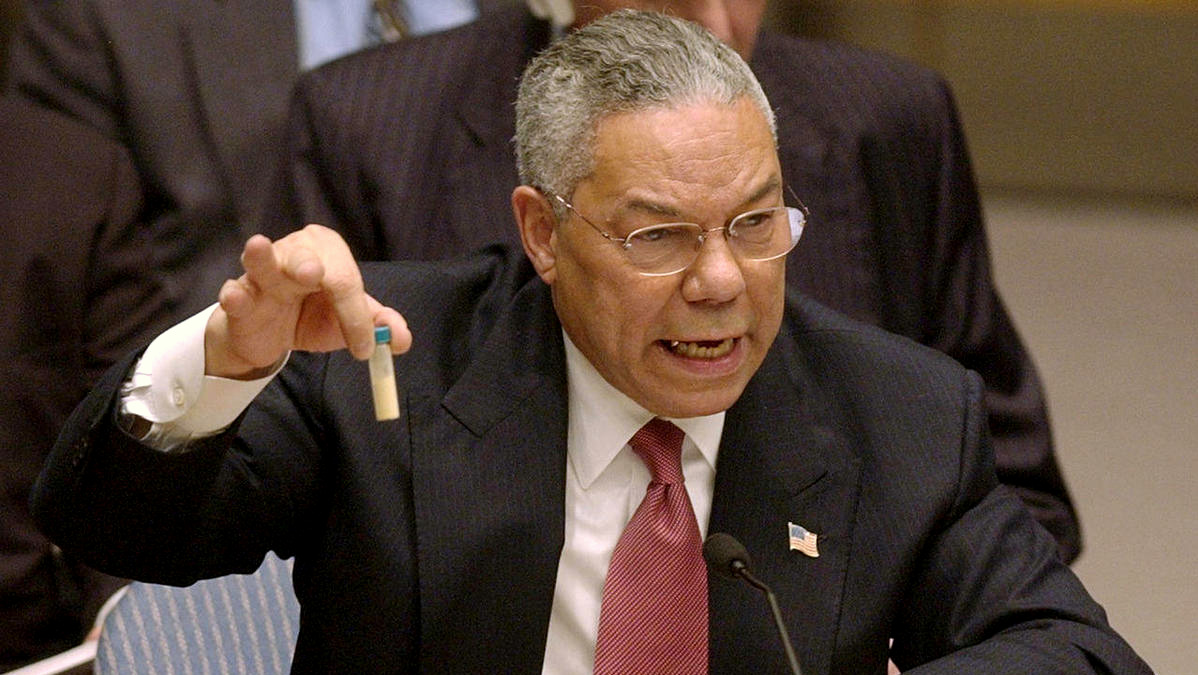
Worse still, intelligence officials have used information, which they knew was gained from torture, to mislead the most senior US officials on issues of war and peace. One of the signatories below was eyewitness to how CIA Director George Tenet persuaded Secretary of State Colin Powell to tell the UN of a “sinister nexus” between Saddam Hussein and al-Qaeda.
Tenet did not tell Powell that this “intelligence” came from a source, Abu Yahya al-Libi, who had been “rendered” to, and waterboarded by, Egyptian intelligence. The Defense Intelligence Agency had deemed this intelligence unreliable, but Tenet chose to ignore DIA and never informed Powell. Al-Libi recanted less than a year later, admitting that he fabricated the story about Saddam and al-Qaeda in order to stop his torture.
Moreover, when you wink at torture, you motivate enemies of the United States to do the same to captured US soldiers, diplomats and travelers while also providing a propaganda bonanza for terrorist groups like al-Qaeda and ISIS.
Indeed, the only reason why CIA torturers have not been tried and sentenced to prison for the damage they have done to the nation is that an intimidated President Barack Obama — who once proclaimed that “nobody is above the law” — balked at allowing the judicial process to run its course, thereby whitewashing the Bush Administration’s many crimes related to the so-called “global war on terror.” Obama attempted to justify his inaction as looking forward rather than backward, but it is more likely that he feared opening up a Pandora’s Box of shameful government secrets that no doubt would have emerged.
Promoting Haspel in spite of her tainted record would send a message to both intelligence and military personnel that embracing practices like torture — indisputably a war crime — can be a path to promotion.
Haspel’s involvement with torture began when she accepted the assignment to go to Thailand — which she could have turned down — to run the “black site” where the interrogations were being conducted. She was, at the time, the deputy in CIA’s Counter Terrorism Center (CTC), working for Jose Rodriguez.
She was in charge of the secret Thailand base in late 2002 while Abd al-Rahim al-Nashiri and possibly more suspects were being tortured in a process that included slamming victims’ heads against walls, subjecting them to painful stress positions, regularly depriving them of sleep, confining them to small, coffin-like boxes, and waterboarding.
The “confinement boxes” were of two types; one was coffin-sized, and the other was smaller and less than waist-high. Both had strong claustrophobic effects. A prisoner would be forced into the smaller box as an extreme form of stress positioning, creating excruciating pain. To maximize psychological distress and exploit phobias, insects were sometimes placed in the pitch-black “coffin” alongside the victim.
Destroying the Evidence
In 2005, after returning to CIA headquarters at Langley, she acted on instructions from Rodriguez and drafted the order to destroy the 92 videotapes that had been made of the interrogations. It has been reported that she was a “strong advocate” for the destruction. This was contrary to instructions provided by CIA Counsel John Rizzo and the White House. Thus, her act may have constituted destruction of evidence — a felony.
Jose Rodriguez was investigated for destruction of evidence by a Special Prosecutor who eventually ruled against charging him. An aide to CIA Executive Director Kyle “Dusty” Foggo later revealed Rodriguez’s rationale for shredding the tapes, writing in an email that “the heat from destroying [them] is nothing compared with what it would be if the tapes ever got into public domain – he [Rodriguez] said that they would make us look terrible; it would be devastating to us.” Gina Haspel ensured that these tapes — important, damning evidence of US government torture — would never see the light of day.
Haspel’s defenders claim that she was not the creator of the torture program and only served as a willing executor of a government initiative that she believed to be legal. That may be true as no one has access to the CTC documents that might prove otherwise. Nevertheless, it does not provide her a free pass under international law, where it is generally referred to as the “Nuremberg Defense” — a thoroughly discredited “defense” that harkens back to the era of Nazi atrocities and those who attempted to justify them by claiming perpetrators were “just following orders.”
‘Nuremberg Defense’ Didn’t Work at Nuremberg
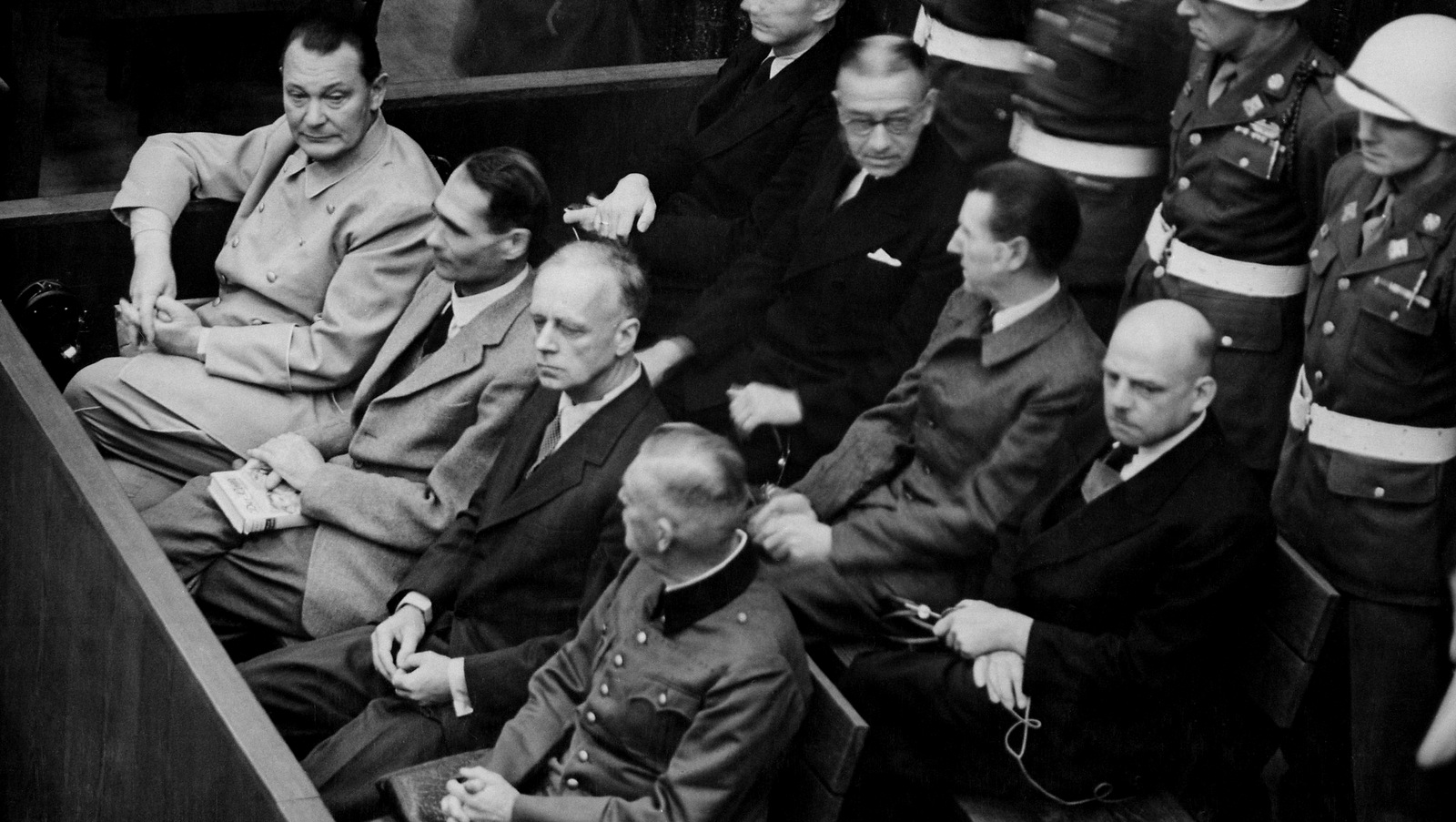
Several former CIA leaders have supported her, saying that she was “implementing the legal orders of the president,” but many of them may be concerned about their own reputations or questionable decisions they may have made in the name of the “war on terror.” And the UN’s International Law Commission says something quite different in its codification of the legal options surrounding torture, writing that “the fact that a person acted pursuant to an order of his government or of a superior does not relieve him from responsibility under international law, provided a moral choice was in fact possible to him.”
It is also claimed that Gina Haspel was working for the CIA Chief of Station (COS) in Bangkok and acting under the COS’s orders, but those of us who have worked in and led CIA bases would dispute that that type of tight control was common, particularly since in this case, she was reporting directly to the Counterterrorism Center at Langley. Haspel would have been the boss and would have had independence in the field in executing directives from CIA Headquarters and the Counterterrorism Center — some of which she herself had a hand in drafting.
If Haspel is confirmed and wishes to travel abroad, she may have to restrict herself to countries not party to the UN Convention Against Torture because of her widely known involvement in the “black site” in Thailand. The 42 countries that have signed and ratified the Convention include the US and most of its allies. All take on a legal obligation to enforce the prohibition against torture, based on the principle of “universal jurisdiction,” when necessary. In other words, they are empowered to act when the accused’s home country refuses to do so.
Not Too Late to Do the Right Thing
If you do not withdraw the nomination of Gina Haspel and she is confirmed, this will cast a moral stain on the vast numbers of patriotic and ethically upright Americans who serve their country in the field of national security. It will also be a continuation of the steady erosion of human rights standards and rule of law post-9/11.
Apparent widespread support for torture among the US public — enabled largely by the false message of Hollywood, the media and the Cheney family that it “works” — is deplorable. It might have been headed off by the prosecutions of Haspel, Rodriguez and others by former President Obama, together with graphic exposure of the evidence. You have an opportunity to reverse this wrong.
Withdrawing Haspel’s nomination now would be a step in the right direction. Confirming her as Director of CIA would signal that Washington embraces what then-Vice President Dick Cheney referred to as the “dark side.” Regrettably, torture was once part of US policy. Indeed, one of this Memorandum’s signatories spent nearly two years in federal prison because he revealed that. But torture cannot be relied upon to yield accurate intelligence. It remains an internationally condemned malignancy that must be excised, never to return.
* * *
For the Steering Group, Veteran Intelligence Professionals for Sanity (VIPS)
Jean Maria Arrigo, PhD, member of 2005 American Psychological Association task force evaluating the role of psychologists in U.S. intelligence and military interrogations of detainees (associate VIPS)
William Binney, former NSA Technical Director for World Geopolitical & Military Analysis; Co-founder of NSA’s Signals Intelligence Automation Research Center (ret.)
Richard H. Black, Senator of Virginia, 13th District; Colonel US Army (ret.); Former Chief, Criminal Law Division, Office of the Judge Advocate General, the Pentagon (associate VIPS)
Bogdan Dzakovic, former Team Leader of Federal Air Marshals and Red Team, FAA Security (ret.) (associate VIPS)
Philip Giraldi, CIA, Operations Officer (ret.)
George Hunsinger, Professor, Princeton Theological Seminary; Founder, National Religious Campaign Against Torture (associate VIPS)
Michael S. Kearns, Captain, USAF (ret.), Intelligence Officer & ex-Master SERE Instructor
John Kiriakou, Former CIA Counterterrorism Officer and former senior investigator, Senate Foreign Relations Committee
Karen Kwiatkowski, Lt. Col., USAF (ret.)
Linda Lewis, WMD preparedness policy analyst, USDA (ret.) (associate VIPS)
Edward Loomis, NSA Cryptologic Computer Scientist, ret.
Ray McGovern, former US Army infantry/intelligence officer & CIA analyst; CIA Presidential briefer (ret.)
Elizabeth Murray, former Deputy National Intelligence Officer for the Near East, National Intelligence Council & CIA political analyst (ret.)
Todd E. Pierce, MAJ, US Army Judge Advocate (ret.)
Valerie Plame, former operations officer, CIA (associate VIPS)
Diane Roark, Republican Professional Staff, House Permanent Select Committee on Intelligence, 1985-2002 (ret.) (associate VIPS)
Coleen Rowley, FBI Special Agent and former Minneapolis Division Legal Counsel (ret.)
Greg Thielmann, former Director, Office of Strategic, Political, and Military Affairs, Bureau of Intelligence and Research, State Department; Former staff member, Senate Intelligence Committee
Peter Van Buren, US Department of State, Foreign Service Officer (ret.) (associate VIPS)
Kirk Wiebe, former Senior Analyst, SIGINT Automation Research Center, NSA
Lawrence Wilkerson, Colonel, US Army (ret.), former Chief of Staff for Secretary of State; Distinguished Visiting Professor, College of William and Mary (associate VIPS)
Sarah G. Wilton, CDR, USNR, (ret.); Defense Intelligence Agency (ret.)
Robert Wing, former Foreign Service Officer (associate VIPS)
Ann Wright, Colonel, US Army (ret.); also Foreign Service Officer who resigned in opposition to the US war on Iraq
Top Photo | This March 21, 2017, photo provided by the CIA, shows CIA Deputy Director Gina Haspel. Haspel, who joined the CIA in 1985, has been chief of station at CIA outposts abroad. (CIA via AP)
Veteran Intelligence Professionals for Sanity (VIPS) is a group of current and former officials of the United States Intelligence Community, including some from the Central Intelligence Agency (CIA), the U.S. State Department’s Intelligence Bureau (INR), and the Defense Intelligence Agency (DIA). It was formed in January 2003 as a “coast-to-coast enterprise” to protest the use of faulty intelligence “upon which the US/UK invasion of Iraq was based.” The group issued a letter before the 2003 invasion of Iraq stating that intelligence analysts were not being listened to by policymakers.


